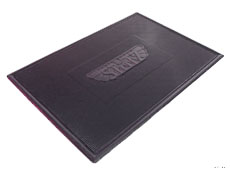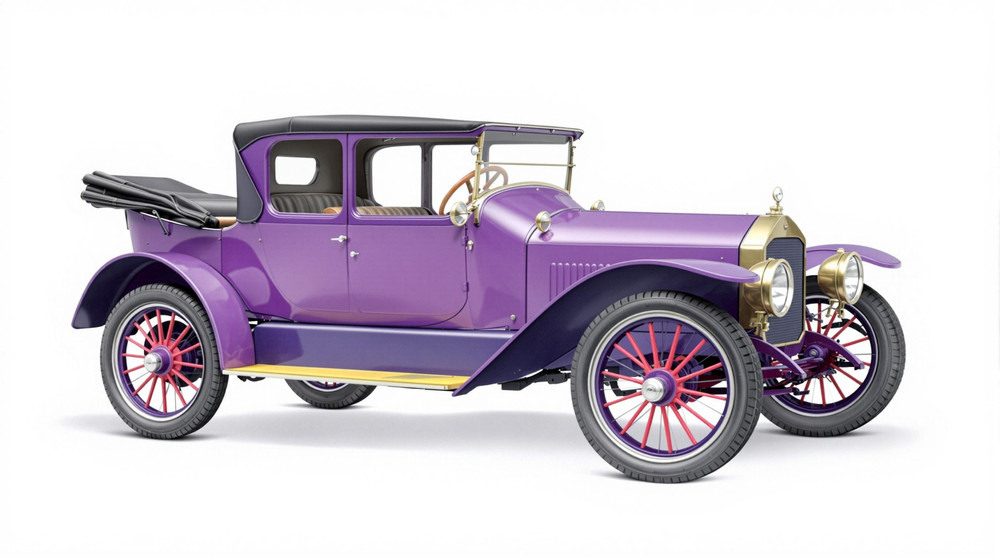Image of 1914 Stutz Model 6e, Note: These illustrations use artistic license and may differ from actual historical models.
Performance Metrics
Fundamental Metrics
Emotional Appeal
MMP Rating
| Engine Specifications | |
|---|---|
| Engine: | T-head inline 4-cylinder engine |
| Displacement: | 390 cubic inches |
| Horsepower: | Estimated 60 HP |
| Torque: | Not available |
| Compression Ratio: | Not available |
| Ignition System: | Magneto ignition system |
| Cooling System: | Water-cooled |
| Performance Specifications | |
| 0-60 Time: | Not available |
| 1/4 Mile Time: | Not available |
| Top Speed: | 70 mph |
| Transmission and Drive | |
| Drive Type: | Rear-wheel drive |
| Transmission Type: | 3-speed manual |
| Fuel and Efficiency | |
| Fuel System Type: | Carburetor |
| MPG: | Not available |
| Dimensions and Brakes | |
| Brakes: | Mechanical drum brakes |
| Wheelbase: | 130 inches |
| Weight: | Estimated 2,800 lbs |
Note: Specifications for classic cars are given to the best of our ability, considering the limited and variant data available.
A Stutz Classic: The 1914 Model 6E
Stepping into the realm of classic cars, the 1914 Stutz Model 6E stands as a testament to early automotive innovation and luxury. Born from the ambitious mind of Harry C. Stutz, this vehicle emerged from an era where automobiles began to symbolize not just transportation, but also status and technological prowess. The Stutz Motor Company, established in Indianapolis in 1911, quickly gained a reputation for performance and quality, with the Model 6E being no exception. A notable moment in its history was its participation in the grueling events of early motorsports, which helped cement its reputation for durability and speed.
Design and Innovation
The exterior of the Model 6E exuded elegance and strength, with a long bonnet housing its powerful engine and a chassis built for endurance. The brass fittings and trimmings sparkled against the bodywork, which came in an array of colors, though deep reds and blacks were among the popular choices that accentuated its grandeur. Inside, the vehicle boasted high-quality leather upholstery and wooden accents that spoke volumes of its luxury status during that era. Technologically, it featured advancements such as electric lighting—a novelty at the time—and a refined suspension system that contributed to a smoother ride.
Historical Significance
The 1914 Stutz Model 6E was more than just a mode of transport; it was an icon of American engineering excellence. Its advanced T-head six-cylinder engine set it apart from many contemporaries still using four-cylinder powerplants. This car didn't just follow trends—it set them, influencing future designs with its focus on performance and comfort.
Performance and Handling
For its time, the Model 6E's performance was remarkable. It could reach top speeds that were unheard of for most road cars of the era. Acceleration figures are harder to come by from this period, but anecdotal evidence suggests it was swift off the mark. Handling was impressive too; drivers reported a sense of control and stability even on less-than-ideal road surfaces. The roar of its six-cylinder engine was music to the ears of auto enthusiasts, while the driving experience was one of raw engagement with machine and road.
Ownership Experience
The Stutz Model 6E served various roles—from daily transportation for the well-to-do to weekend racing for the adventurous spirits. Maintenance required mechanical know-how but was considered straightforward by those familiar with early automotive engineering. Reliability was one of its strong suits, as proven by its endurance in long-distance races.
Fun Facts
This classic has seen its fair share of interesting tidbits over time. While exact production numbers are elusive, it's believed that only a limited number were made due to their handcrafted nature. The Model 6E has also graced private collections of notable individuals throughout history and has appeared in significant historical events that underscored its endurance capabilities.
Collector's Information
Today, a 1914 Stutz Model 6E can fetch a substantial sum in the collector's market, with values ranging significantly based on condition, provenance, and originality. Rarity is unquestionable as few have survived through the decades. As for appreciation trends, vehicles like this tend to see an upward trajectory given their historical significance and rarity.
Conclusion
The 1914 Stutz Model 6E is more than just an antique; it's a piece of automotive history that represents innovation, luxury, and performance from an era long past. Its legacy endures in the hearts of classic car enthusiasts and collectors alike—a true gem from the dawn of motoring excellence.
1914 Stutz Model 6e Catalog of Parts
 1914 Stutz Model 6E Accessory Floor Mat - 12"X17"-AC 41Accessory Floor Mat - made of high quality black rubber with molded original emblem. Also designed to be sewn into new carpets. 12"X17", Each
1914 Stutz Model 6E Accessory Floor Mat - 12"X17"-AC 41Accessory Floor Mat - made of high quality black rubber with molded original emblem. Also designed to be sewn into new carpets. 12"X17", EachWhy Choose Metro?
For over 100 years, Metro Moulded Parts has been the pinnacle of quality in classic car restoration parts. Our commitment to precision and authenticity in every component ensures a perfect fit and an OEM-level appearance.
- Expert Craftsmanship & Quality: Each part is a testament to our dedication to reliability and perfection, crafted from original designs and thoroughly tested.
- Advanced Technology: We use cutting-edge techniques to create flawless, long-lasting parts that surpass others in performance.
- SuperSoft Sponge – The Ultimate Door Seal: Not only are our door seals 30% softer than competitors', but they're also guaranteed to never leak. They effectively reduce wind and road noise, enhancing your classic car's comfort and driving experience.
- Proudly American: Our parts are a product of American craftsmanship, made in the USA with a spirit of excellence and heritage.
- Unrivaled Warranty: We back our products with a 30-year industry-leading warranty, a testament to our confidence in their quality.
Join us in preserving the legacy of classic cars with parts that are crafted for perfection, not just made.

